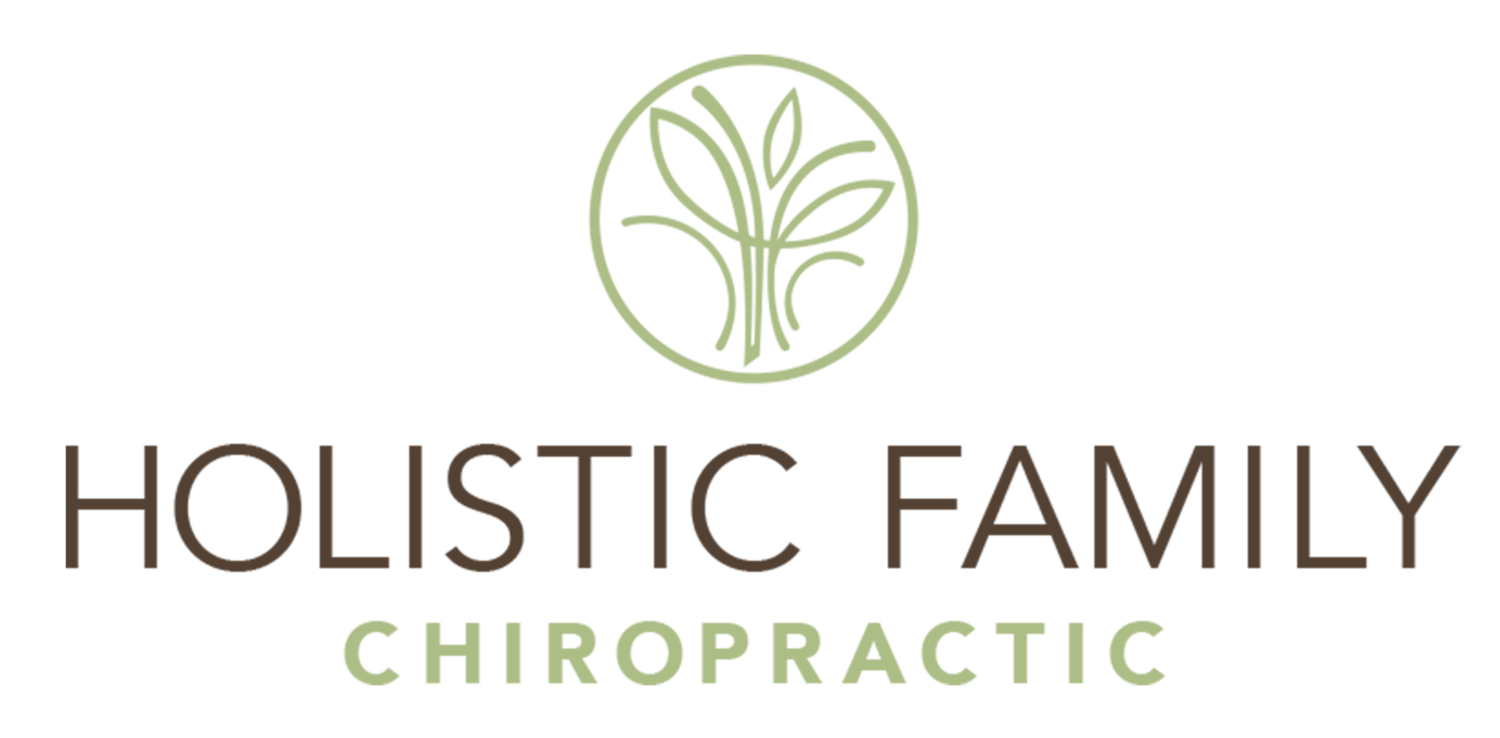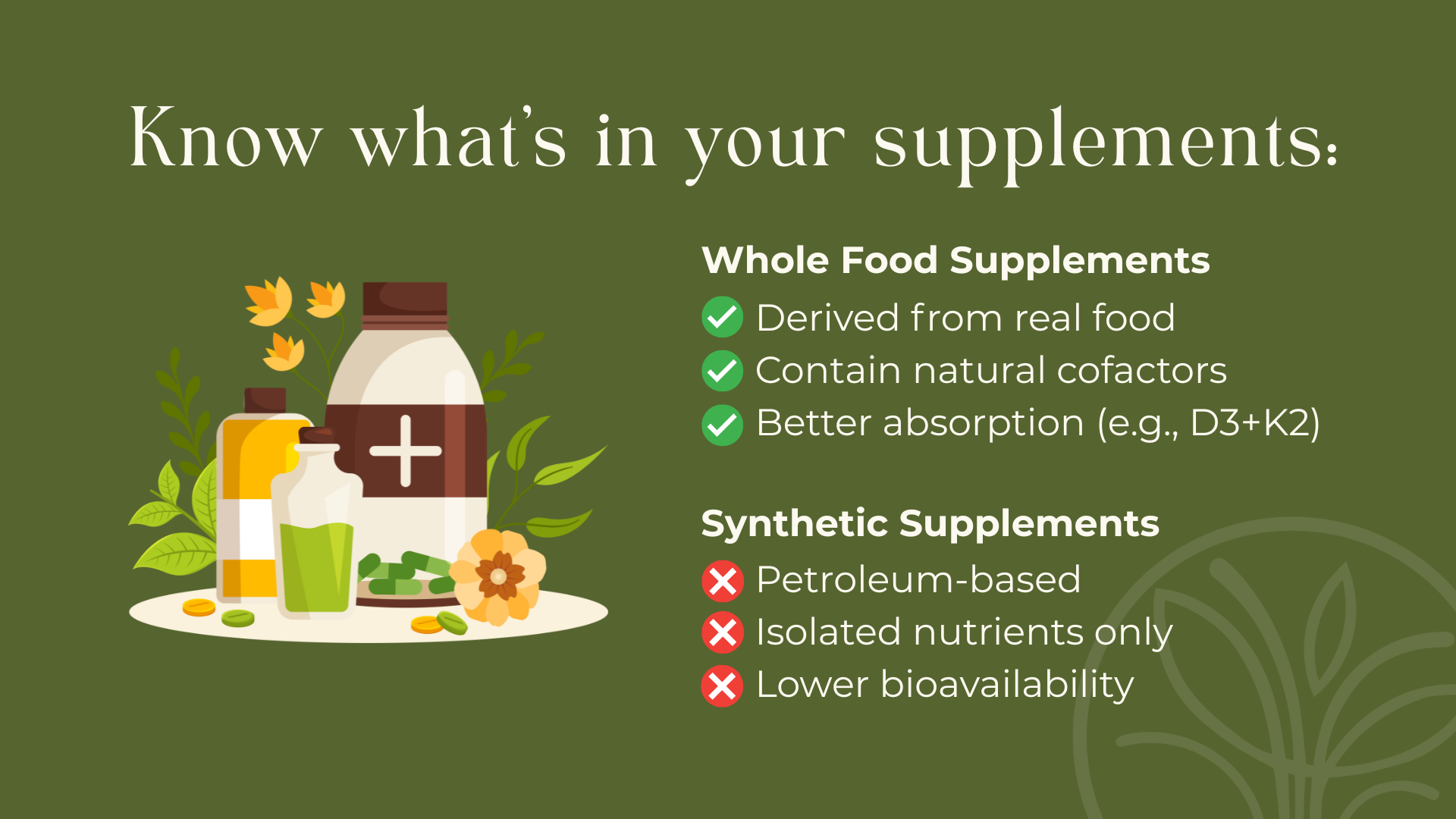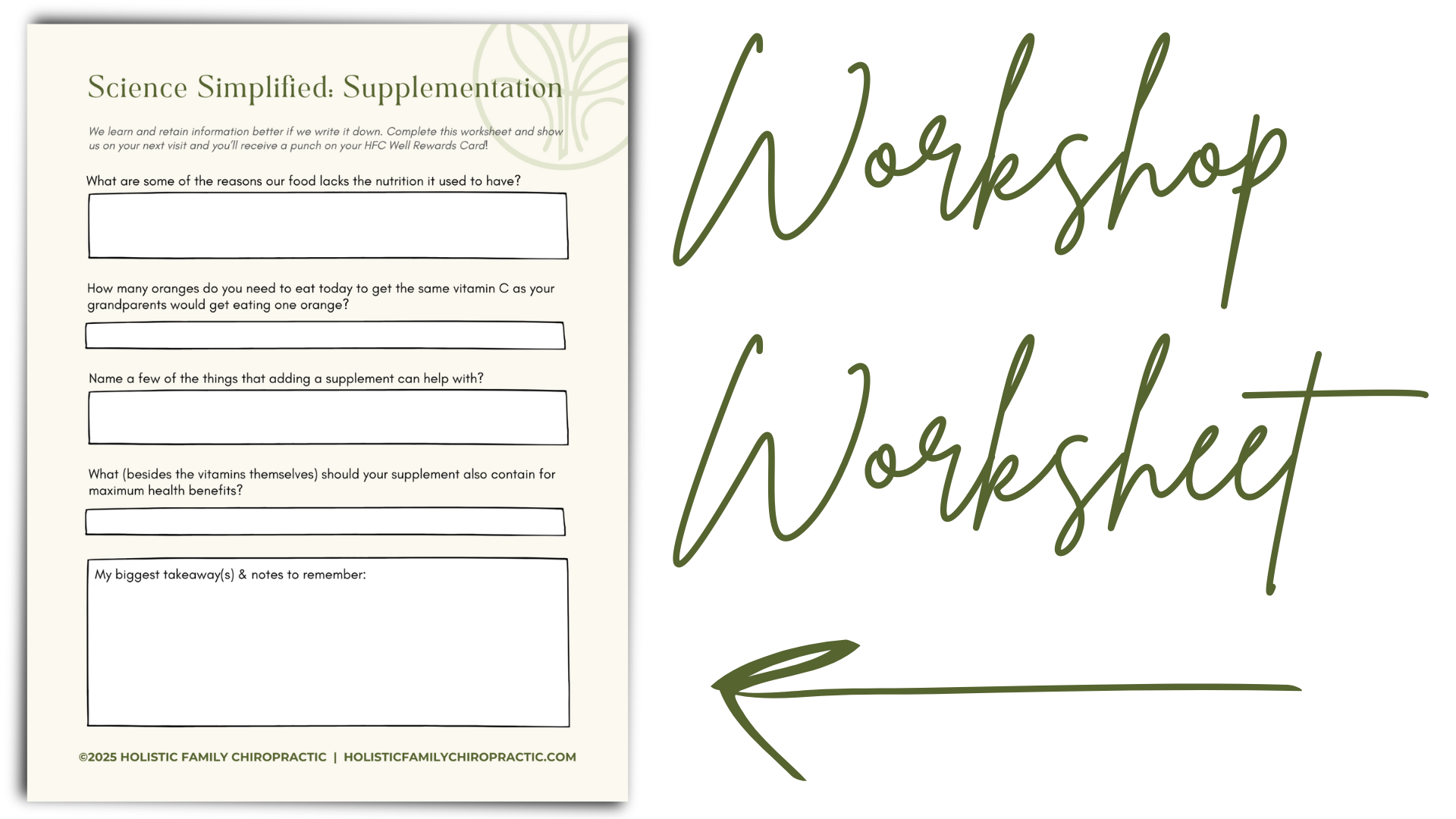Lessons from Science Simplified: Supplementation
Are You Getting the Right Vitamins & Minerals?
If we’re trying to eat healthily and make good choices for our families, it’s a bummer to learn that a lot of the food we consume today isn’t as nutrient-rich as it once was.
But that doesn’t mean we’re powerless. By understanding where nutrients are lost and how to restore them, we can take meaningful action to support our health.
A Hidden Crisis: Soil Depletion
You might be wondering why we even need supplements if we’re eating a balanced diet. The answer lies in the soil.
Over the past 50 years, the nutrient content in our soil has dramatically decreased.
Our soil is now lacking critical nutrients, such as zinc and magnesium, which are essential for cellular processes. This depletion is largely due to farming practices focused on maximizing crop yield rather than replenishing the soil with vital minerals.
Why Organic Isn’t Always Enough
While buying organic is a step in the right direction, it doesn’t guarantee that the soil is rich in nutrients.
Organic farming avoids harmful pesticides and GMOs, but it doesn’t necessarily mean the soil is being replenished with the nutrients our bodies need. That means, even with organic produce, we might not be getting the same nutrient yield our grandparents did.
Cofactors in Whole Food Supplements
Whole food supplements are derived from natural sources and include essential cofactors that help your body absorb nutrients effectively.
Unlike synthetic supplements, which are often petroleum-based, whole food supplements work synergistically with your body. For example, vitamin D3 needs vitamin K2 to be properly absorbed into your cells. Without these cofactors, your body might not utilize the nutrients as intended.
The Power of Zinc and Magnesium
Zinc and magnesium are two minerals that have seen significant depletion in our soil. They play crucial roles in hormone balance, energy levels, and reducing inflammation.
One supplement we use and love, Thinc Zinc +, is designed to address these deficiencies by providing a blend of essential nutrients that work together to boost your overall health.
☞ Learn more about Thinc Zinc + here.
What You Can Do Today to Improve Your Vitamin Levels
1. Consider supplementation.
Given the current state of our soil, supplementation is more important than ever. Look for whole food supplements that include essential cofactors for optimal absorption.
2. Support local and organic.
While not a complete solution, supporting local and organic farms can help promote better farming practices.
3. Stay informed.
Understanding the source and quality of your supplements is key. Research brands and products to ensure they align with your health goals.
4. Keep your appointments.
Regular chiropractic adjustments can help your body manage stress and inflammation. If it’s been over 30 days since your last visit, it might be time to schedule your next appointment.
By taking these steps, you can help bridge the nutrient gap and support your body’s natural healing processes. Remember, health is holistic, and every small change can lead to a healthier, more vibrant life.


